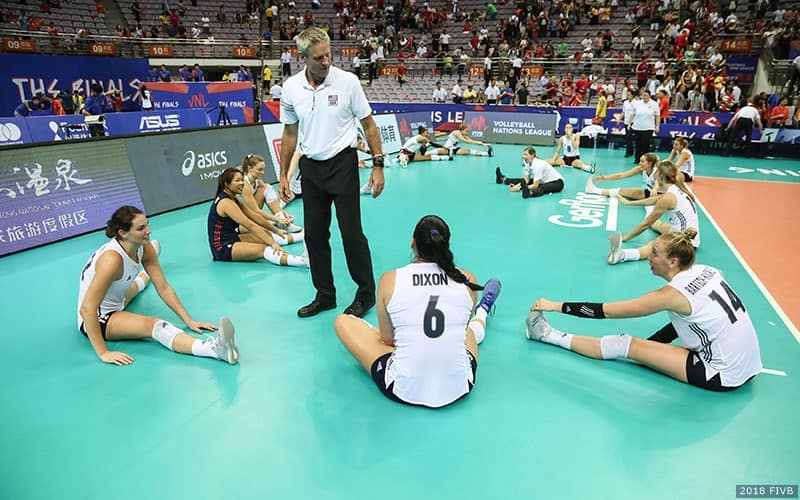
Originally published in VolleyballUSA
When it comes to practice, it’s not enough just to have a pulse and show up at the gym.
You’re probably thinking, “Duh, Karch, I knew that.” But I say it to emphasize the point that there’s a big difference between just clocking in and clocking out, and engaging in purposeful practice.
In the book “Outliers: The Story of Success,” author Malcolm Gladwell writes about factors that lead to high-level achievement and examines the 10,000-hour principle, which is based on a study by Swedish psychologist Anders Ericsson. After the book was published in 2008, this principle was widely misinterpreted. Many saw it as validation that you can become a world-class performer in your profession after 10,000 hours of practice. Not so.
The point was that achieving mastery or near mastery only happens after thousands of hours doing deliberate practice. That’s very different, and the distinction is one that was recently addressed in the book “Peak: Secrets from the New Science of Expertise,” which was co-authored by Ericsson.
As it relates to volleyball, practice that isn’t deliberate doesn’t do much to improve your game. If you mindlessly forearm pass 20 easy tosses, there’s no challenge and no real benefit. It might feel good that you passed them perfectly, but that’s about it. To really improve, your training needs to include the following:
- Goals
- Intense focus
- Pushing yourself out of your comfort zone
- A way to measure your improvement
- Feedback from a coach or teammate
Getting Feedback While Setting Goals
Feedback might come from a coach, but you can also get it from another player. Pick a teammate, tell him or her what you’re working on, ask them what they’re working on, and then give feedback to each other throughout practice. Training partners serve two good purposes: they help you maintain your motivation and your focus.
People who visit USA practices see how purposefully our players attack each activity. Anybody who watches our passers practice, like Jordan Larson or Kim Hill, is likely to see them repeat their action without the ball to reinforce what they’ve done right – or correct what they are trying to improve. Either way, they are dialed in and intensely focused on what they’re doing.
When working on a single skill like passing, our athletes often set very specific goals. In the case of passing, a national team player might aim to stand in against a certain number of high-level serves and get eight out of 10 on their sweet spot. (A club or high school player might set a lower standard – maybe four out of 10.)
The sweet spot, as you probably know, is the forearm area between the wrist and elbow. Ideally, the ball should hit both arms equally, not more of one than the other. Getting the ball on your sweet spot sometimes involves taking it at shoulder height and to the side, outside your body line.
Great passers have to build proficiency contacting the ball on their sweet spot no matter where the serve goes: deep or shallow, high or low, far away or close – not just near their bellybutton.
A great testimony to the value of deliberate practice was seen a few years ago when a music study was conducted in Japan with 24 children between the age of 2 and 6.
Through a very structured practice schedule, they were taught “perfect pitch” – the ability to hear a sound and identify the key (for example, the difference between C and F#). For hundreds of years, people considered perfect pitch something you’re born with, not something that could be learned by the average child. Mozart, for instance, had it by age 7. In this study, every one of the 24 kids mastered it within a year and a half. That’s the power of deliberate practice.
With that said, you should understand that certain things will limit you no matter how well you practice. If you’re 4-6, you’re probably not going to make it to the NBA. If you’re 6-10, you’re probably not going to be a jockey. But the big picture is that you can achieve immense improvements in any skills with deliberate practice.
Practicing with purpose is the best, single thing you can do to reach your potential in volleyball or anything else you choose to pursue in sports or life.

